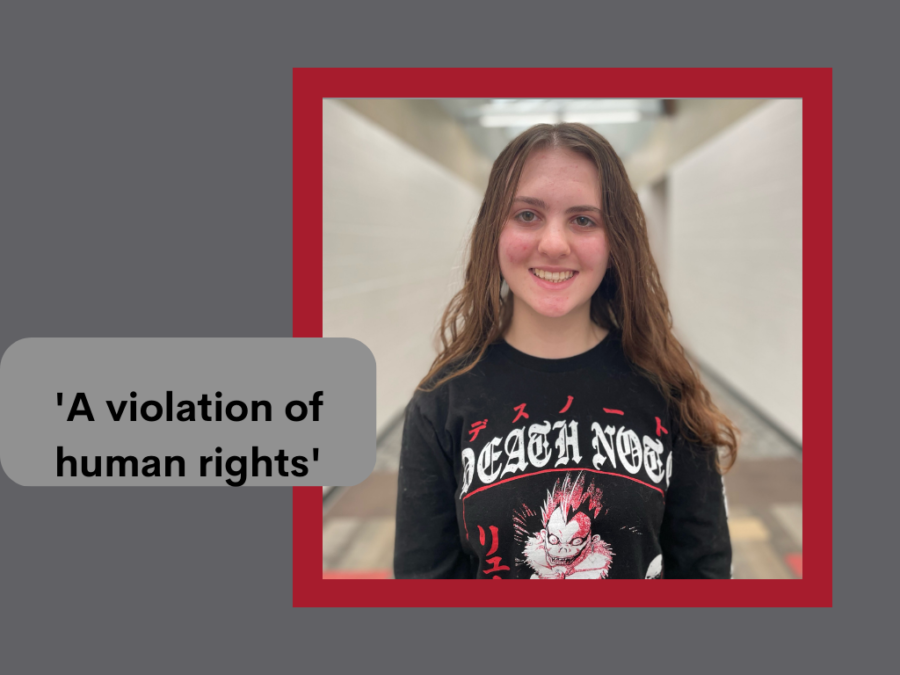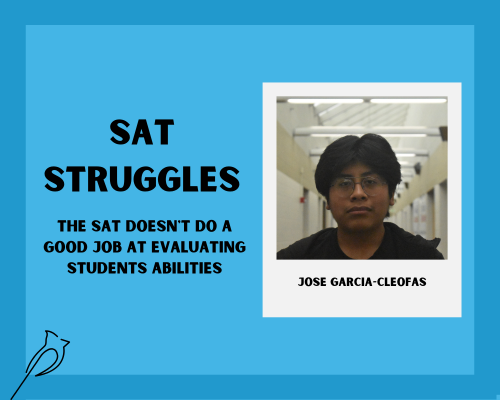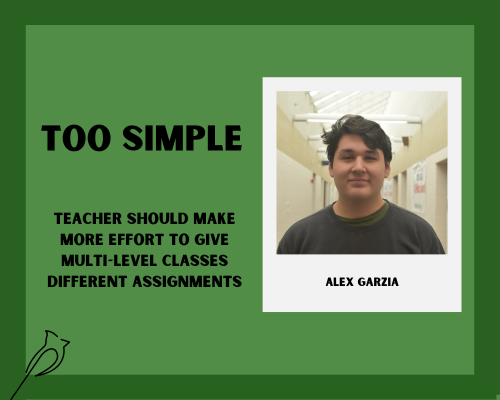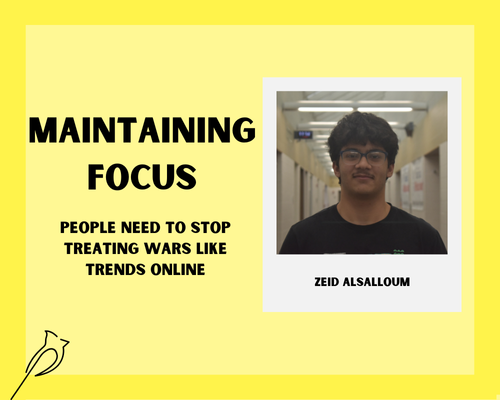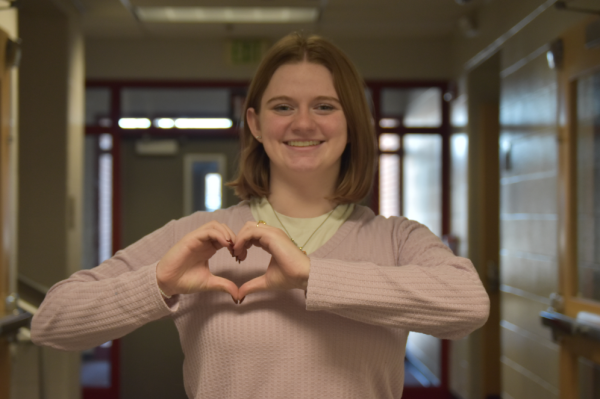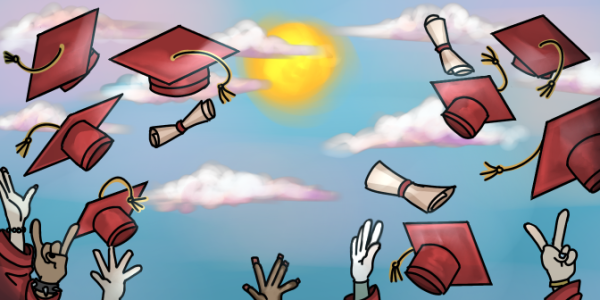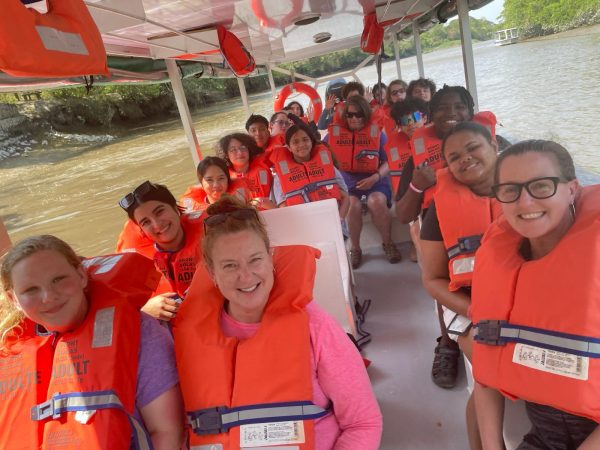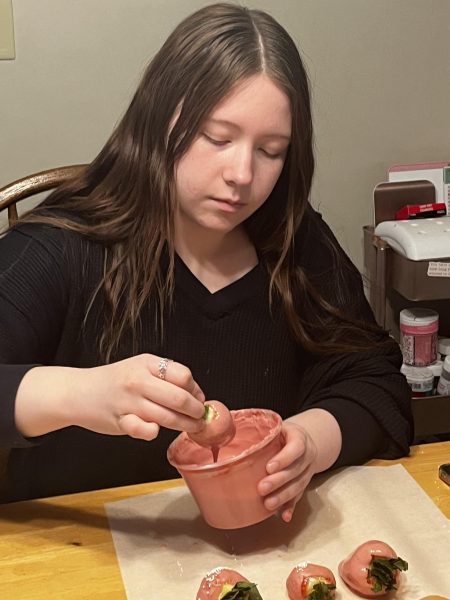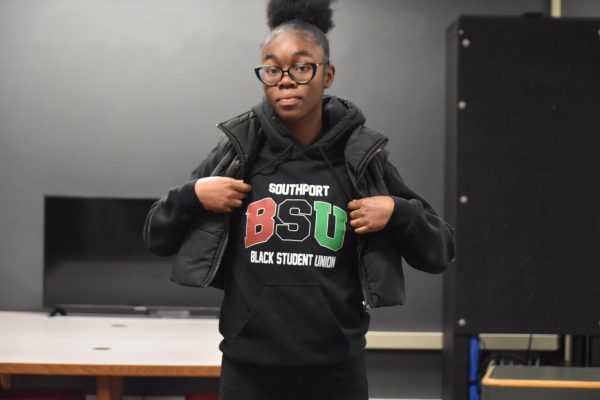‘A violation of human rights’
The U.S. shouldn’t censor media
Censorship has historically been known as the bad guy, a violation of human rights. The Nazi Regime gained much of its power through the wide scale banning and burning of books, and even today the people of North Korea aren’t allowed to consume media that’s unapproved by the government. According to the ACLU, censorship is defined as, “the suppression of words, images, or ideas that are ‘offensive’” when someone succeeds in pushing their values on others.
The 14th Amendment makes it unconstitutional for the government to restrict expression based on content. However, there has been a rise in U.S. censorship within the past few months, from statewide book bans to federal bans on entire social media platforms. But, Americans can and should make their own judgments on the content they consume without government interference, state or federal.
Despite it being forbidden to ban books from entire states, state governments have used their power to ban certain books from public libraries in schools. Most recently, Florida governor Ron DeSantis has banned hundreds of books in dozens of school districts, claiming that he was only restricting content that was “pornographic, violent or inappropriate.”
This quote is interesting considering that many of the books banned were non-graphic children’s books promoting diversity, according to the nonprofit organization PEN America. Among those banned were the books, “The Gift of Ramadan” and “Berenstain Bears and the Big Question.” This ban of seemingly innocent material begs the question: who decides where the line is drawn? Who decides what should be considered “too violent” or “too inappropriate” for children? Parents and teachers or a single governor?
Not only are book bans a hot topic at the moment, so is the concept of TikTok becoming completely banned in America. TikTok’s CEO, Shou Zi Chew, recently testified before Congress and, although news reports say that this ban is due to concerns of government security and data leakage in China, members of Congress had many questions that focused on the content of the app.
Although it is unconstitutional for the government to limit expression due to content, there are exceptions for when that content poses a national threat. However, the content shown and the talking points made in the hearing didn’t seem to indicate anything of the sort. What was claimed, however, was that the content was offensive or harmful to children, according to their own personal opinion. Since the COVID-19 pandemic hit, TikTok has become a main source of entertainment, connection, communication and even revenue for millions of Americans. Taking away such an active form of expression purely based on its content is a violation of freedom of speech.
Government officials may feel that they are benefiting the people by protecting them from potentially harmful information, but no person should be prevented from seeing information and ideas, and no person should have their ideas robbed of an audience. People know what they can and can’t handle, and the government should trust them on that before human rights become violated.

Hey there! My name is Sophie Barker, and I can’t believe I’m a senior this year! I’m taking a position back in writing this year for the Features...


